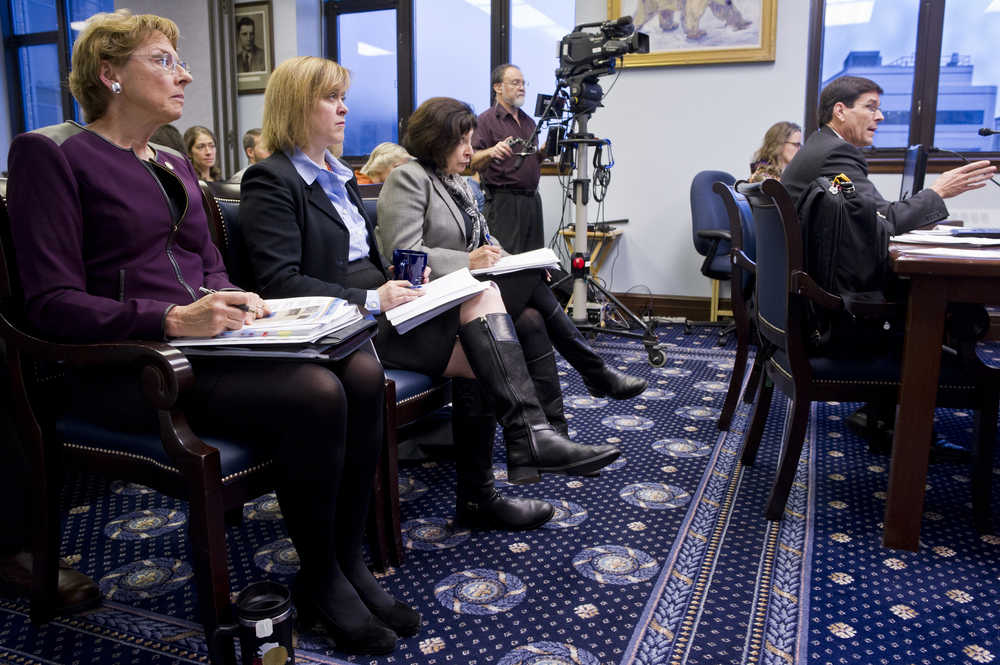The AKLNG natural gas project will be big enough to supply 5 percent of the world’s natural gas. It will carry enough gas to meet the entire natural gas needs of Germany.
So said Steve Butt of ExxonMobil, the person at the top of the megaproject that expects to bring natural gas from the North Slope to Cook Inlet for export.
The project is estimated to cost between $45 billion and $65 billion in total, and the state of Alaska will have a one-quarter share of the profits — and the expenses — of what is right now the largest natural gas project in the world.
“It’s an enormous undertaking,” said Butt, who spoke to the finance committees of both bodies of the Alaska Legislature on Friday.
The Legislature has convened in special session as it weighs whether to allocate $157.6 million to pay for the state’s share of the first phase of AKLNG.
To avoid paying up front for its one-quarter share in the project, the state entered into a contract with TransCanada. Under the terms of the agreement, TransCanada pays all of the state’s direct costs until construction begins, then half of the state’s share of construction costs. In return, the state gives TransCanada a cut of its revenue once gas starts flowing.
If the pipeline deal falls apart for any reason, or if TransCanada wants to walk away from it, the state must repay TransCanada every dollar plus 7.1 percent interest.
That’s a high interest rate compared to the open market, which is why the state is considering a buyout and has earmarked $68 million of the legislative request to take an “offramp” built into the TransCanada contract. If the state doesn’t act by Dec. 31, its next offramp is years (and hundreds of millions of dollars) later.
Butt said that though he’s been seconded to AKLNG from ExxonMobil, because the state is a partner in the project, “that means I work for you.”
“You’re paying for about 25 percent of my appearance here. I guess this arm, and part of this leg,” he added with a joke.
Under questioning from Sen. Anna MacKinnon, R-Anchorage and chairwoman of the Senate Finance Committee, Butt said work on AKLNG is already more advanced than any other of the state’s failed gas pipeline efforts.
To date, the state and its partners — BP, ConocoPhillips, ExxonMobil and TransCanada — have spent about $435 million on AKLNG.
“We spend about $30 million a month right now,” he said.
That’s more than was spent on the failed Alaska Gasline Inducement Act ($330 million), Denali Gas Pipeline ($100 million), Yukon-Pacific, or the Alaska Natural Gas Transportation System.
When the AKLNG partners enter the next stage of pipeline prep at the end of 2016, AKLNG will have spent more than all of those previous projects combined.
Butt reassured legislators that AKLNG remains economically viable and is advancing on track, something that remains a concern of lawmakers. If the state buys out TransCanada’s share of the project, the state-owned Alaska Gasline Development Corporation will take charge of the state’s quarter-share of the effort.
Butt said the AGDC is prepared for that eventuality.
The Legislature is expected to take a final vote on the buyout this week.
• Contact assistant editor James Brooks at 523.2258 or at james.k.brooks@morris.com.

